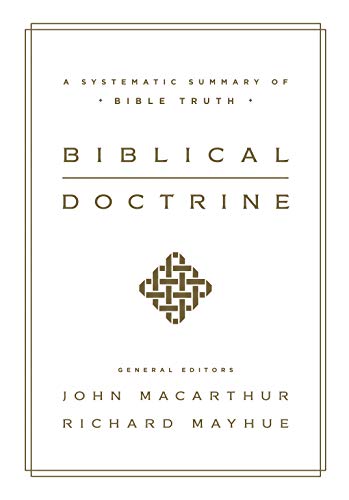Miracles are common in both the Old and New Testaments. But many skeptics, as well as some Christians, are asking, “Can miracles still happen today?”
No one is immune to crisis. Sooner or later, tragedy will strike and in a moment, our calm and peaceful life will become a raging storm. We will then face a crisis only the miracle power of God can see us through.
What are Miracles?
A miracle may have several, different definitions.
1. First, we may define a miracle as “a less common kind of God’s activity in which He arouses people’s awe and wonder and bears witness to Himself.”
This definition takes into account an understanding of God’s providence whereby God preserves, controls, and governs all things. If we understand providence in this way, we will naturally avoid some other common explanations or definitions of miracles.

2. We can also define a miracle as “an exception to a natural law” or “God acting contrary to the laws of nature.”
However, this definition does not adequately account for the biblical teaching on providence.
It’s because the phrase “laws of nature” in popular understanding implies that there are certain qualities inherent in the things that exist, “laws of nature” that operate independently of God. Thus, God must intervene or “break” these laws for a miracle to occur.
3. Another definition of a miracle is “God working in the world without using means to bring about the results He wishes.”
Again, this definition is inadequate. To speak of God working “without means” leaves us with very few if any miracles in the Bible. It is hard to think of a miracle that came about with no means at all.
When Jesus healed people, for example, some of the physical properties of the sick person’s body were doubtless involved as part of the healing.
When Jesus multiplied the loaves and fishes, He at least used the original five loaves and two fishes that were there. When He changed water to wine, He used water and made it become wine.
Therefore, the first definition given above, where a miracle is simply “a less common way of God’s working in the world,” seems to be preferable. It is more consistent with the biblical doctrine of God’s providence.
This definition does not say that a miracle is a different kind of working by God, but only that it is a less common way of God’s working. And that it is done to arouse people’s surprise, awe, or amazement in such a way that God bears witness to Himself.
Miracles in the Bible
In the beginning, God separated day from night, flung the glittering stars into space, and set the sun ablaze. He formed the earth and all that was in it. And then He breathed into a handful of dirt and made a living soul. These are miracles!
It was not until Abraham was one hundred and Sarah was ninety did God miraculously bless them with a son. God performed miracles for Moses as he led the children of Israel out of Egypt.
God let Joshua hold the son and stopped the moon (Joshua 10:12-14). Daniel muzzled the mouths of the lions (Daniel 6:21-22). And the three Hebrews children came out unscathed from the burning furnace (Daniel 3:23-27).
For us, God sent a Redeemer, His Son, Jesus of Nazareth, born of a virgin. That was a miracle!
Jesus’ Ministry of Miracles
Jesus had a ministry of miracles. He turned water into wine (John 2:1-11). He healed the sick and afflicted (Matthew 9:35; 12:15; 14:14, 36; 15:30; Mark 6:56; 7:37). He fed multitudes of people (Matthew 14:13-21; 15:32-39 and raised the dead (Luke 7:11-15; 8:49-55; John 11:38-44).
Those were wondrous miracles. But the most important miracle of all was when Jesus died to pay our sin debt, was buried, and rose from the dead on the third day.
That was a glorious, victorious miracle. And because of that miracle, our sins are forgiven and forgotten.

Photo Credits: The Chosen TV Series
The Purposes of Miracles
We read the Bible and we can’t help but ask what the purposes of miracles are.
In the days of Moses, the plagues on Egypt demonstrated that the God of Israel was superior to the gods of Egypt. The miracles that accompanied the Exodus confirmed that God was behind that event and that Moses was the designated leader of His people.
In the days of Elijah, God provided a series of spectacular signs at the hands of His prophets to prove that Baal was a false god. In the days of Jesus, God worked many miracles to confirm the identity of His son and to validate the fledgling church.
In the New Testament, one purpose of miracles is certainly to authenticate the message of the gospel. When miracles occur, they give evidence that God is truly at work and so serve to advance the gospel. The apostle John reported certain miracles of Jesus “that you may believe that Jesus is the Christ, the Son of God …” (John 20:31).
The miracles in the Old Testament were intended to stamp with approval God’s unique movements. But the miracles of Jesus went a step further. The final miracle attached to the life of Jesus was His resurrection, which stamped His life and death as extraordinary.
Objections to Miracles
The most common objection to miracles is that they are logically impossible. Even if there is a God, critics will say, “He has set up the world to operate in a certain way. For God to interrupt the order of His creation is to violate what He made and called very good” (Genesis 1:31).
This view assumes whenever supposed miracles are subjected to rigorous examination, the examiners will find insufficient evidence or possible alternative explanations.
These critics accuse people who believe in miracles of circular reasoning. “I want to witness a miracle, so I insist that this unusual event is an act of God.”
This sort of approach to denying miracles is itself circular. The naturalist ends up saying, “Miracles can’t happen in our closed natural universe. Therefore, every unusual event has a natural explanation, even if I can’t figure it out.”
But God exists, and the universe is more than a closed system of physical laws and is subject to the wise power of its Creator. Thus, belief in miracles of time, matter, and space seems reasonable indeed.
Disclaimer: As an Amazon Associate, I may earn a commission when you use any links on this page to make a purchase, but at no additional cost to you.
Doctrine isn’t just for theologians―it’s important for every Christian because it shows us who God is and how we should live.
Are Miracles Still Happening Today?
Some have argued that miracles were restricted to the apostles or those closely connected with them. But the unusual concentration of miracles in the ministries of the apostles does not prove that no miracles were performed by others!
In the larger context of the New Testament, it is clear that miracles were worked by others who were not apostles, such as Stephen (Acts 6:8) and Philip (Acts 8:6–7). Christians in the several churches in Galatia (Galatians 3:5), and those with gifts of “miracles” in the body of Christ generally (1 Corinthians 12:10, 28) also worked miracles.
What about today?
Many other Christians throughout the first-century church were working miracles by the power of the Holy Spirit. The same Holy Spirit is still working miracles today in the lives of Christians.
Although those whom God gifts with the ability to perform miracles may not be able to perform them whenever they wish, the Holy Spirit is continually distributing them to each person “as He wills” (1 Corinthians 12:11).
Miracle: An Answer to Prayers
There have been many instances when God answered a persistent prayer. For instance, physical healing for which there is no known medical explanation. Although God may do so only after several months or years of prayer, it seems quite clearly to be in response to prayer so that people are amazed and glorify God.
When this happens, there seems no reason to deny that a miracle has occurred simply because the earlier prayers were not answered immediately.
The ministry in the power and glory of the Holy Spirit is characteristic of the new covenant age (2 Corinthians 3:1–4:18). Therefore, we would expect that Christians today would also have the ability to minister the gospel with accompanying miraculous demonstrations of God’s power.
Should Christians Seek Miracles?
It is one thing to say that miracles might occur today. It is quite another thing to ask God for miracles. Is it right then for Christians to ask God to perform miracles?
The answer depends on the purpose for which miracles are sought. Certainly, it is wrong to seek miraculous power to advance one’s own power or fame, as Simon the magician did (Acts 8:21-22).
It is also wrong to seek miracles simply to be entertained, as Herod did (Luke 23:8). It is also wrong for skeptical unbelievers to seek miracles simply to find ground to criticize those who preach the gospel (Matthew 16:1-4).
There is nothing inappropriate in seeking miracles for the proper purposes for which they are given by God.
In the Gospels, many people came to Jesus seeking miracles, and He healed them for these purposes. Moreover, when the Lord sent His disciples out to preach, He required them to seek for miracles to happen.

Experiencing Miracles
We do not have to understand miracles to experience one. Man has a two-fold nature: physical and spiritual. If we are willing to experience only what our minds can understand, we will never experience a miracle.
The God of the natural is the God of the spiritual. The God who enforces the law of gravity enforces the law of miracles. Nothing is impossible with God!
Jesus said, “Whatever things you ask when you pray, believe that you receive them, and you will have them” (Mark 11:24). He also said, “If you ask anything in My name, I will do it” (John 14:14).
When you need a miracle in your life, remember that miracles happen when you obey the Word.
References:
NKJV Prophecy Study Bible Edited by John Hagee & Systematic Theology by Wayne Grudem



Christians boasting or just extolling about a miracle that has supposedly happened to them just upset and depress the rest of the church because it’s not the way God works in the Western world today.
My reaction is, “I wish their God would get off his backside, there are so many of us who are suffering or have loved ones who are ill.”
Hey Lawrence,
I understand where you are coming from. You’re right; regardless of the circumstances we are facing, the suffering many people are facing are much greater.
It would be insensitive to boast about the miracles we experienced without considering what other people are going through.
However, I believe that miracles still happen today. I say this because the God we are serving today is the same as yesterday, today, and forever.
As the Word of God says, “if we boast, we boast in the name of the Lord.”
Have a blessed day ?!